How "Kyrgyzpharmacy" Works: Procurement, Budgets, and Access to Medicines
In an interview with AKIpress, the director of "Kyrgyzpharmacy," Talant Sultanov, shared details about planning, international cooperation, and interaction with suppliers.
- What is the budget of "Kyrgyzpharmacy"?
- "Kyrgyzpharmacy" was established only two and a half years ago, and since then, the organization has been actively developing its activities.
Initially, 1 billion soms were allocated for procurement, which were successfully utilized. In the following year, when it became clear that the organization was necessary for the healthcare system, consolidated procurement began: the needs of over 300 medical institutions are gathered and purchased in bulk.
As a result, prices for some medications have been reduced by 3-5 times. Previously, the cost of the same medication varied in different regions, and suppliers often refused to work with remote areas. Now all 300 hospitals send their requests, and procurement is conducted centrally.
- There were previously issues with supplies, for example, at the National Oncology Center, when medications did not arrive for months. Has this situation improved?
- The healthcare sector is complex, especially when it comes to medications, as it is directly related to the well-being of citizens. Ensuring the quality and availability of drugs is key, as procurement is carried out from global manufacturers who have numerous orders.
It is important to plan supplies in advance: an approved list of needs must be formed 6 months ahead. After receiving it, we begin negotiations with manufacturers and make payments. Medications are prepared specifically for Kyrgyzstan — packaging, translations, and labeling take about two months. Then the medications are delivered to the country by various means: by rail, air, or road transport.
Upon arrival, the medications undergo quality certification. Firstly, they must be registered with the Department of Drug Provision, which controls all permitted imported drugs and medical devices. Without registration, procurement is impossible. Secondly, the department checks the quality of a specific batch. After all checks, the medications are sent to the warehouse of "Kyrgyzpharmacy" and distributed to medical institutions.
Therefore, we insist on planning 6 months in advance. Since "Kyrgyzpharmacy" is a new organization, in the first years we had to learn from our own mistakes to avoid similar problems in the future. We hope that 2026 will be more organized than 2025.
Currently, we continue discussions on the list of locations with the Ministry of Health; it has not yet been approved. We expect to finalize it soon and begin active procurement for the timely arrival of medications in the country.
The budget for 2025 is 5.8 billion soms. In the first year, 1 billion soms were allocated, and these funds were used for procurement. In the second year, the volume of procurement increased to nearly 4 billion, but the working capital remained the same — 800 million, as 200 million from the first year had already been utilized. Thus, we are operating with 800 million to meet needs of 5.8 billion.
The system functions as follows: medical institutions pay for medications only after their delivery. However, manufacturers, especially international ones, require prepayment for the purchase of raw materials and production. We first make payment to the manufacturer, then the medications are delivered to the country, distributed to institutions, and only then do hospitals make payment for the supplies.
This financial gap sometimes leads to delays, as manufacturers expect prepayment, while we need to collect funds from hospitals. This system is currently being optimized.
At the level of government bodies, decisions have already been made for more organized work.
- Are there problems with medication shortages in the country?
- First of all, we primarily work with medical institutions and do not interact directly with pharmacies.
However, there are sometimes disruptions in the market with certain medications or delays in their supplies. This can be related to several factors. Firstly, all medications must be registered for import into the country.
Since the Kyrgyz market is small, global manufacturers are not very interested in spending resources on registering drugs here. It is easier for them to register a product in a country with a larger number of consumers. Therefore, Kyrgyzstan addresses this issue through the consolidation of needs.
We are discussing the possibility of joint procurement with neighboring countries — Kazakhstan and Uzbekistan — which makes us more attractive to global manufacturers, reduces prices, and ensures the availability of medications.
The issue of drug registration in the country remains relevant. We are actively attracting manufacturers to our market, as about 95% of medications are imported. Developing local production will reduce dependence on imports and avoid global problems.
Long-term contracts are another step towards solving these challenges. They allow manufacturers to see stable demand over several years, plan production, and register drugs in Kyrgyzstan. This also provides an opportunity to ask manufacturers to localize part of the production in the country. Such experience has already been implemented in Kazakhstan and Uzbekistan, where leading international companies have established local production.
If we develop long-term contracts, we will be able to attract global manufacturers to build factories and organize production in Kyrgyzstan.
- Why has the number of state pharmacies "El Aman" decreased?
- In my opinion, "El Aman" pharmacies have a social focus and were initially opened in areas where the private sector was absent. Their goal was to ensure access to medications for residents of the most remote villages and regions.
However, we are now observing that in some pharmacies there is insufficient demand for them to remain financially sustainable. Therefore, the management of "El Aman" is forced to close certain locations. Additionally, some premises where pharmacies were located are being closed for reconstruction or demolished due to active construction and infrastructure development, such as roads.
However, new pharmacies are planned to be opened in other locations. The Ministry of Health and state agencies managing real estate are exploring opportunities to create suitable points for "El Aman" pharmacies.
- The issue of reforming the enterprise has been raised multiple times in parliament. What exactly was meant by these reforms and what measures have already been implemented?
- At the time when the Minister of Health Erkin Maratovich [Erkin Checheybaev] spoke in the Jogorku Kenesh, we were undergoing significant reorganization of "Kyrgyzpharmacy," aimed at strengthening international cooperation and digitizing business processes. Digitization and automation help make procurement more transparent and increase accountability.
Firstly, we updated the rules to align them with international procurement standards, which was done with the support of international organizations. Secondly, we are implementing automation of processes — from procurement and supply chain management to contracts, to ensure everything is transparent and efficient.
Regarding international cooperation, the establishment of a special management unit for this direction has allowed for more dynamic and timely negotiations with global manufacturers, ensuring timely access for patients and medical institutions to medications. Currently, many manufacturers are coming to Kyrgyzstan to discuss supplies, and we are also negotiating with international UN organizations that handle procurement on a global level.
The consolidation of Kyrgyzstan's needs allows for price reductions of 3-4 times. International organizations such as UNICEF, UNDP, UNFPA, and UNOPS procure medications under long-term contracts with WHO prequalification, which guarantees high quality and affordable prices. We plan to use their system for procurement to ensure the country has high-quality medications at competitive prices.
Read also:
Myths about State Procurement of Medicines Debunked at "Kyrgyzpharmacy"
The topic of government procurement of medications generates a lot of discussions and debates. Many...
"Kyyrgyzpharmacia": In 10 months, pharmaceuticals worth 4 billion soms were supplied to the Kyrgyz Republic
In the first 10 months of 2025, centralized supply of medicines and medical products in Kyrgyzstan...
At "Kyrgyzpharmacy," it was reported that medicine supplies will increase in 2025.
The state enterprise "Kyrgyzpharm" has published the results of its activities for the...

Prices for medicines have decreased by 4-5 times due to direct supplies - "Kyrgyzpharmacy"
In Kyrgyzstan, 95% of medications are imported. This was stated in an interview with the Kabar...
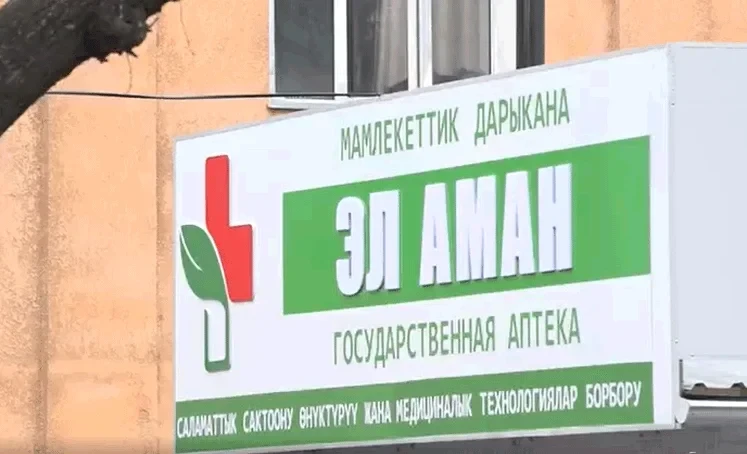
Medications in state pharmacies are sold 5% cheaper – Talant Sultanov
In pharmacies under the brand "El Aman," medications are offered on average 5% cheaper...
"Kyyrgyzpharmacy" and "Biovit" will join forces to develop national pharmaceuticals
The signed framework agreement between "Kyrgyzpharm" and "Biovit" is aimed at...

"Kyrgyzpharmacy" and "Biovit" signed a cooperation agreement
The state enterprise "Kyrgyzpharmacy" recently signed a framework agreement with the...
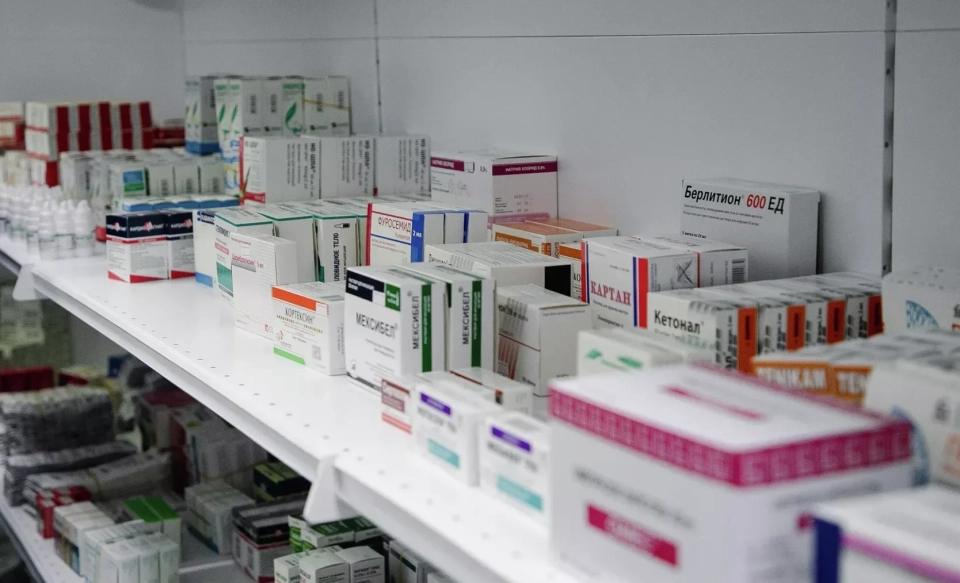
The range of medicines in "El Aman" pharmacies will be expanded — Talant Sultanov
The director of the state enterprise "Kyrgyzpharmacia," Talant Sultanov, recently stated...
In the village of Syny, Aksy District, a 100-seat kindergarten will be built for 70.2 million soms.
In the Aksy district, in the village of Syny, the construction of a kindergarten for 100 places...
Expenses for the work of the Jogorku Kenesh have exceeded 1.2 billion soms since the beginning of the year
From January to November 2025, the total expenses for the activities of the Jogorku Kenesh amounted...
"Kyrgyzfilm" announced a tender for the purchase of sound equipment for 15.8 million soms
The Department of Cinematography has announced the start of a tender for the procurement of sound...
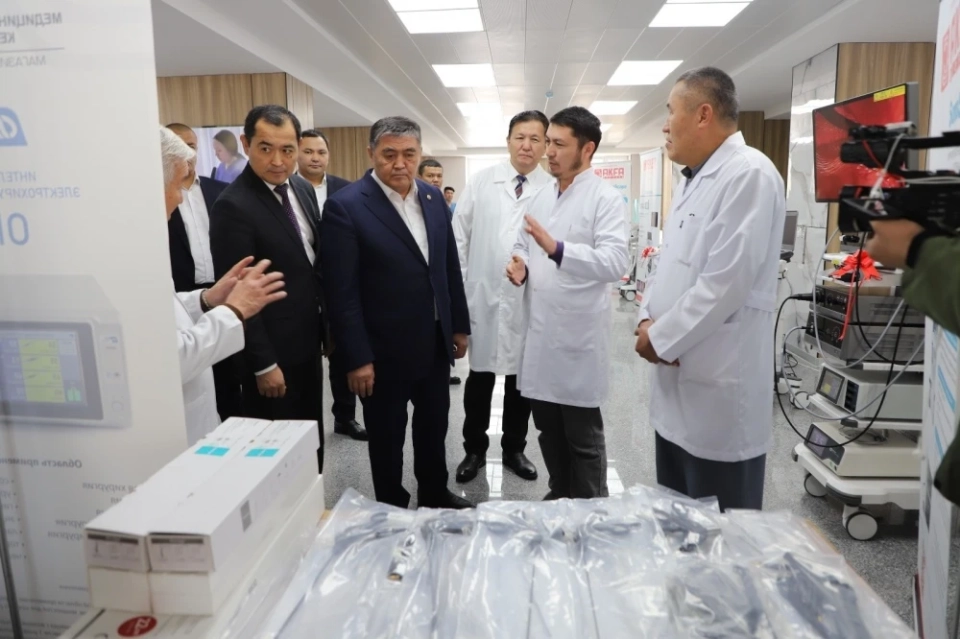
Kamchybek Tashiev presented equipment worth 35 million soms to the NCODD
During his visit, Tashiev presented the center with six sets of high-tech medical equipment,...
A tender has been announced in Manas for the construction of the presidential lyceum "Aqylman"
A tender has been launched in Manas for the construction of the presidential lyceum...
How to Build an Effective Cardiovascular Care System and Improve Patient Survival? Opinion of Professor Batyraliev
Professor Talantbek Batyraliev, who previously held the position of Minister of Health, shared his...
The Ministry of Agriculture of Kyrgyzstan denies information about the drop in bean prices
The Ministry of Agriculture of Kyrgyzstan has refuted information about a drop in bean prices. In...
Minister of Energy: It's incorrect to say that we are fully prepared for winter
In an interview on "Birinchi Radio," Ibraev emphasized that last year, 2 billion soms...
In the Talas Region, 70.8 thousand tons of beans have been harvested
- In the Talas region, the bean harvest this year amounted to 70.8 thousand tons, as reported by...
In the village of Zhany-Dostuk in the Batken region, a 225-seat school will be built for 88 million soms
In the village of Zhany-Dostuk, a new school designed for 225 students will be built in the...
Since the beginning of the year, over 77 million soms have been received in the budget from the mining tax
According to the data from the National Statistical Committee, from January to September 2025, the...
More than 9 billion soms are the assets of the Deposit Protection Agency
As of September 30, 2025, the assets of the Deposit Protection Agency reached 9.136 billion soms,...
Revenue to the budget increased manifold after the monopolization of alcohol production
The State Agency for Management of State Property reported that Kyrgyzstan's alcohol products...
The WHO proposed a way out of the healthcare financing crisis for countries
The World Health Organization (WHO) has released new recommendations for countries facing a sharp...
The Ministry of Health has strengthened control over the political neutrality of medical workers ahead of the elections
At a meeting held at the Ministry of Health, key aspects of preparing the healthcare system for the...
30 billion soms a year - the cost of non-communicable diseases. What solutions does the Ministry of Health propose?
According to information from the press service of the Ministry of Health, non-communicable...
Politics, Tourism, and Business Between Kyrgyzstan and Mongolia: An Interview with the Ambassador of the Kyrgyz Republic, Artykbaev
Since the official opening of the Embassy of Kyrgyzstan in Mongolia in July 2023, bilateral...
The Ministry of Internal Affairs announced a tender for the design of police buildings in Osh and Batken regions.
The Unified Directorate of Construction Enterprises of the Ministry of Internal Affairs has...
Car registration has started to bring significantly more money to the budget
From January to September 2025, Kyrgyzstan received 3 billion 999.2 million soms (approximately...
The Ministry of Health urged medical workers to maintain political neutrality during the election period
A working meeting was held at the Ministry of Health with leaders of medical institutions and...
The Minister stated: there is no crisis in Kyrgyzstan's energy sector.
In an interview with media representatives, Ibraev emphasized that citizens should not worry about...
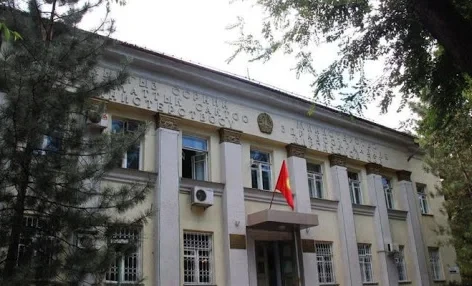
A meeting was held at the Ministry of Health to prepare healthcare organizations for the elections of deputies to the Mazhilis.
A working meeting was held at the Kyrgyz Ministry of Health, where leaders of medical institutions...
Almost 264 billion soms in Kyrgyzstan are outside the banking system
As of October 1, 2025, the total amount of money in circulation reached 290 billion 191.1 million...
How much does coal cost in the Ak-Talinsky District and will it last through the winter?
In the Ak-Talinsky district, located in the Naryn region, the price of coal ranges from 3,800 to...
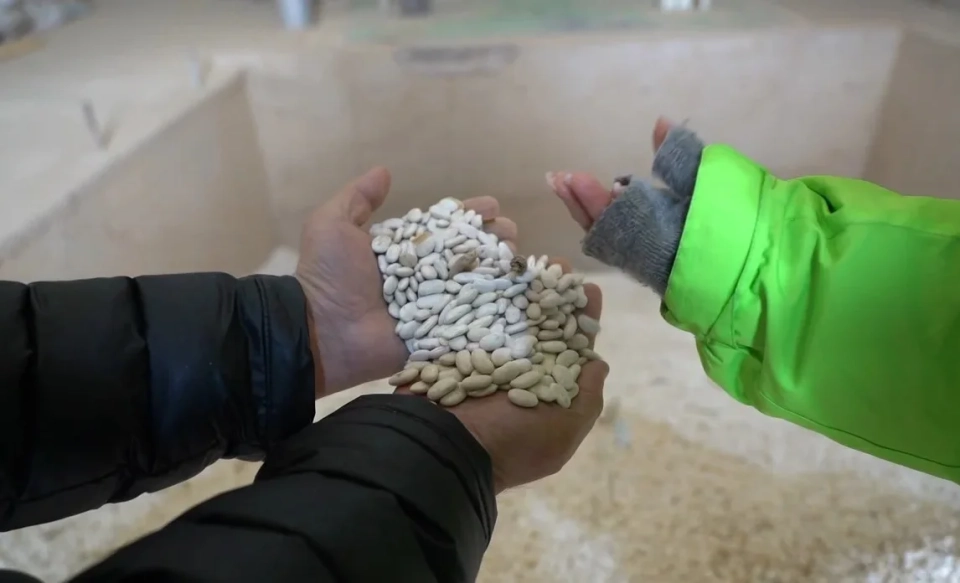
The bean harvest in Talas reached nearly 71 thousand tons
In 2023, the Talas region harvested 70.8 thousand tons of beans, as reported by the Ministry of...
In the village of Kara-Bulak, a kindergarten will be built in the Kichi-Kemin district for nearly 110 million soms.
In the Chuy region, in the village of Kara-Bulak, located in the Kichi-Kemin district, the Chuy...
Ming-Bulak Village Council announced a tender for the lighting of the Bishkek—Naryn—Torugart highway for 34.4 million soms
In the Ming-Bulak rural area, a tender has been announced for the procurement of materials for the...
Bleeding and sepsis - the main causes of maternal mortality in 2024
In 2023, Kyrgyzstan registered 38 cases of maternal mortality, while in 2024 this number decreased...
"Altyn Alliance" has transferred over 10 billion soms in taxes to the KR budget for the first time in just 9 months
Since the beginning of the development of the "Djerui" deposit, the total amount of...
In the village of Kyrgyz-Kaba in the Bazar-Korgon district, a kindergarten will be built for 42 million soms.
The announcement of the tender for the construction of a kindergarten in the village of Kyrgyz-Kaba...
A school for 175 students will be built in the Ala-Bukinsky district for 145.2 million soms
The Jalal-Abad Regional Department of Capital Construction of the Department of Housing and Civil...
In Kyrgyzstan, Budget Revenues from Car Tinting are Increasing
From January to September of this year, the republican budget received 838 million 639.9 thousand...
NTRK announced a procurement for the creation of a musical animated series for children aged 0-3 years.
The National Television and Radio Broadcasting Corporation (NTRC) has announced the start of the...
How much was received in the budget from fines and license issuance, reported the Ministry of Transport
In the first nine months of the current year, the country's budget received 861 million 192...

Tash-Rabat
This tourist area includes two ancient monuments — the caravanserai Tash-Rabat and the settlement...